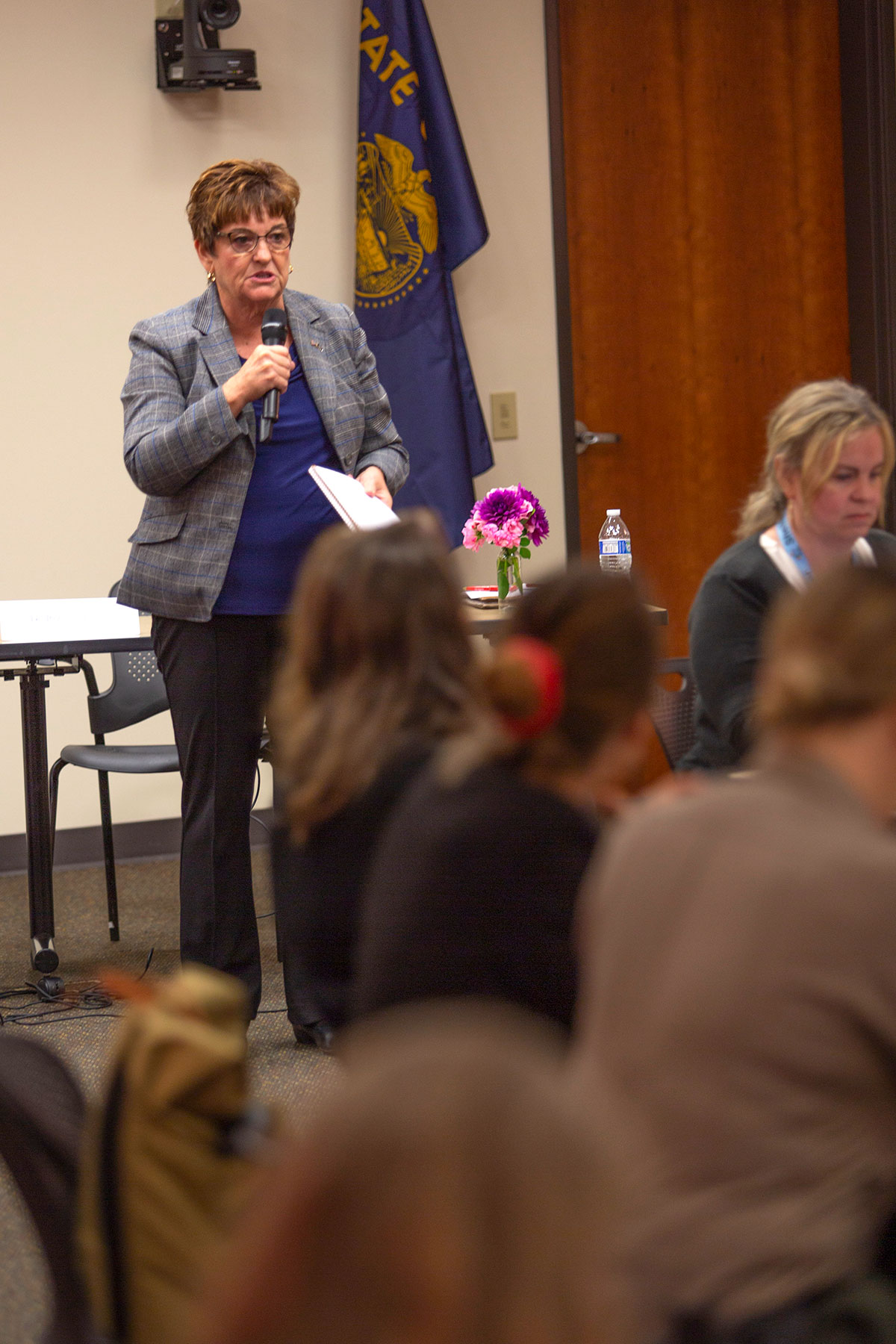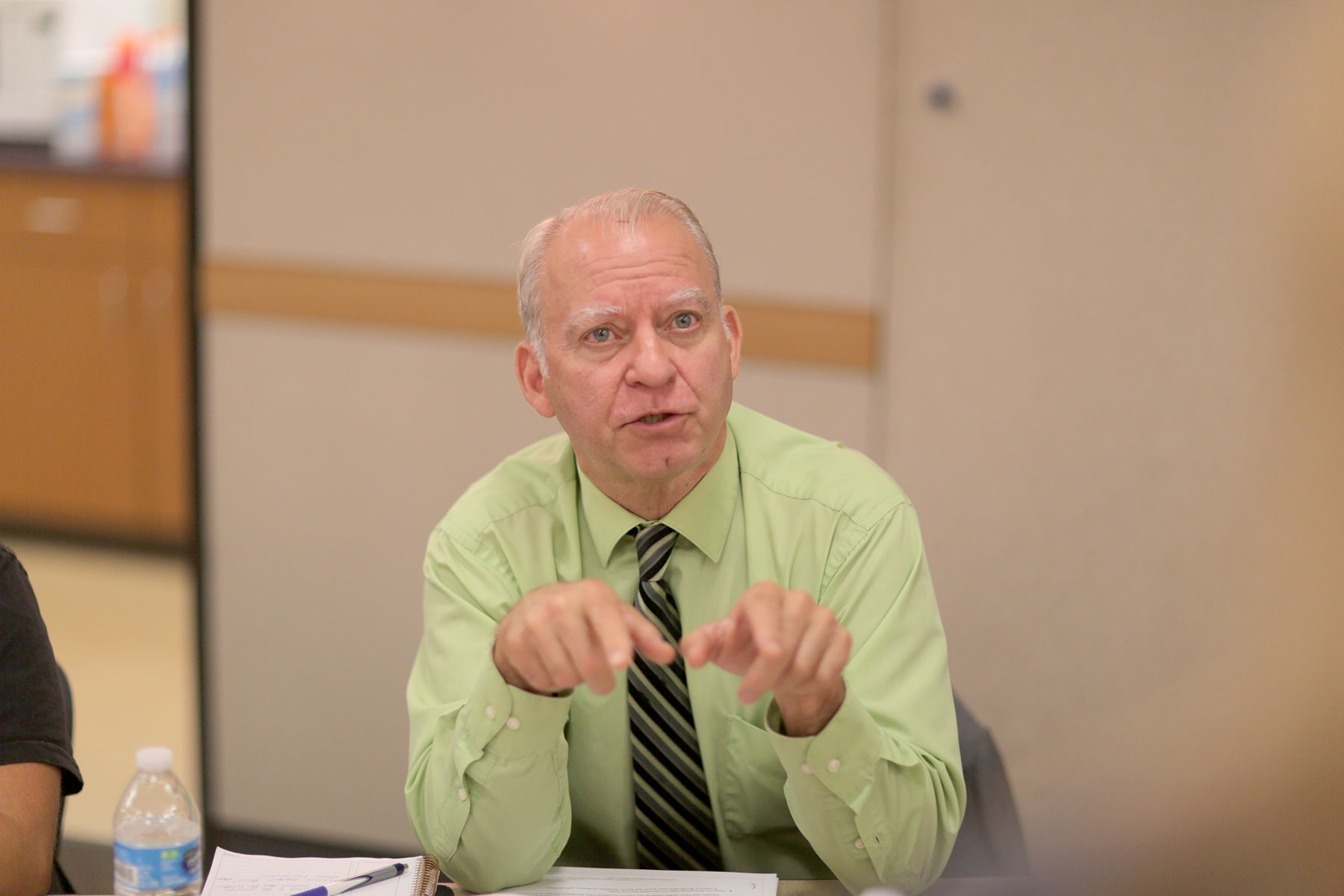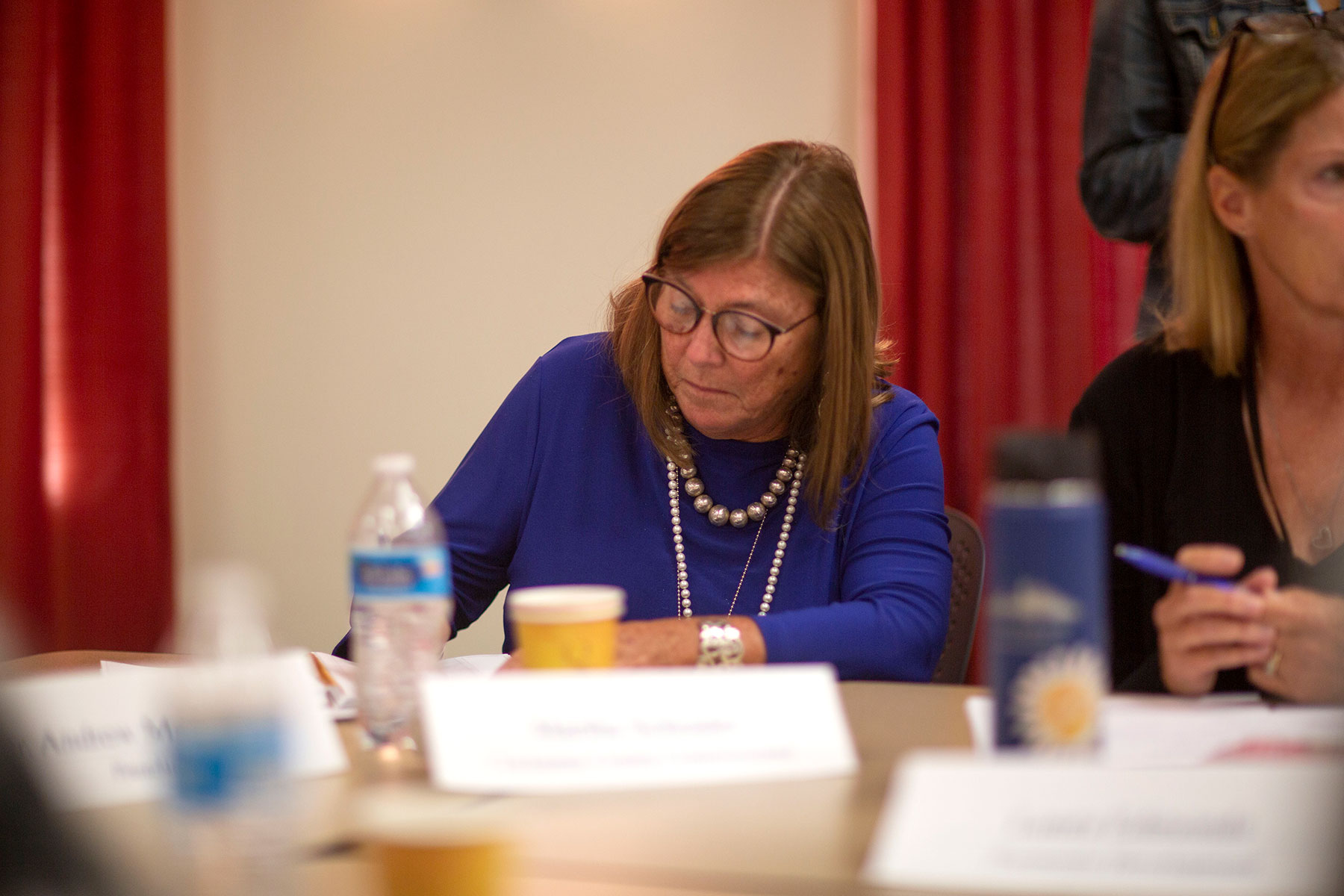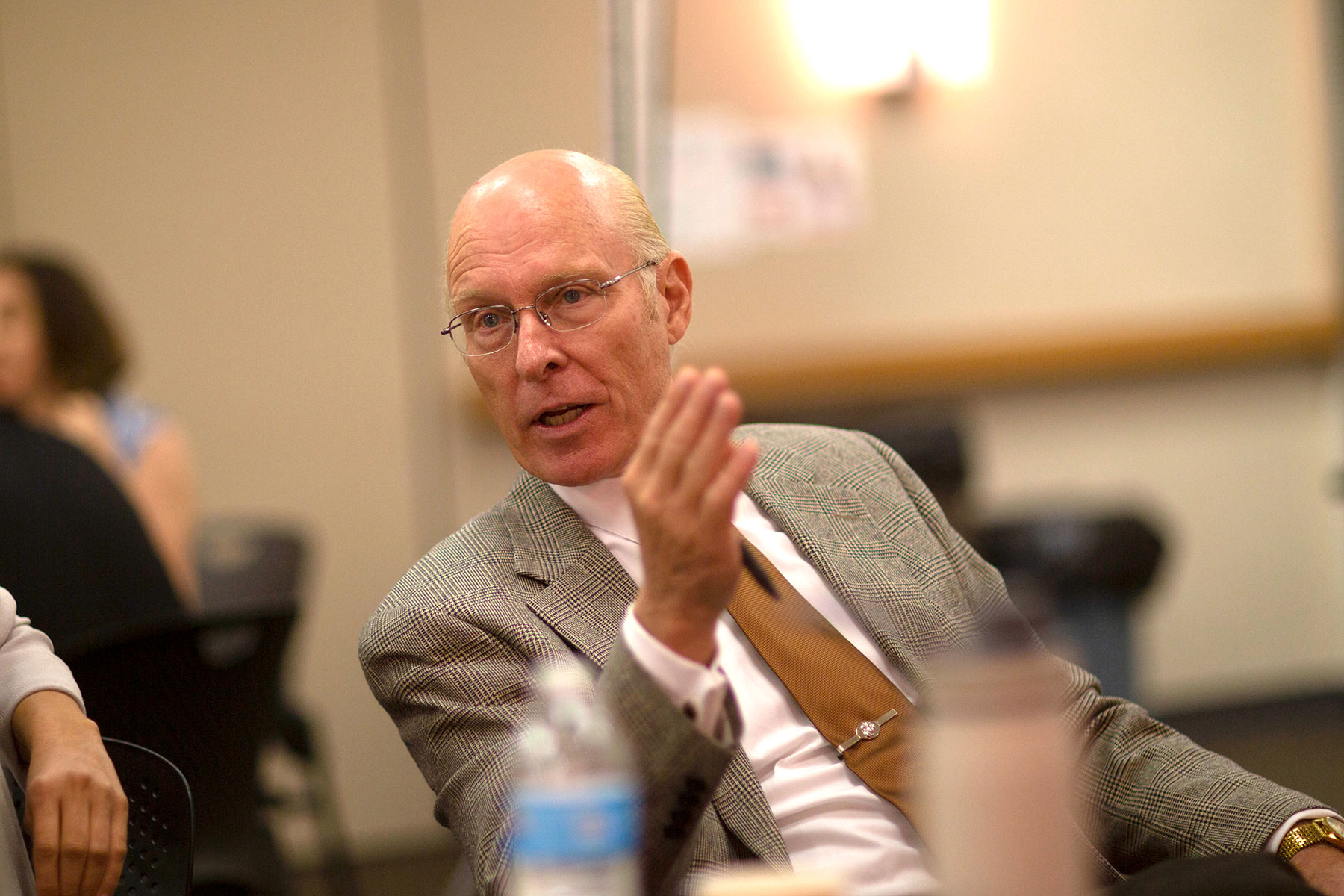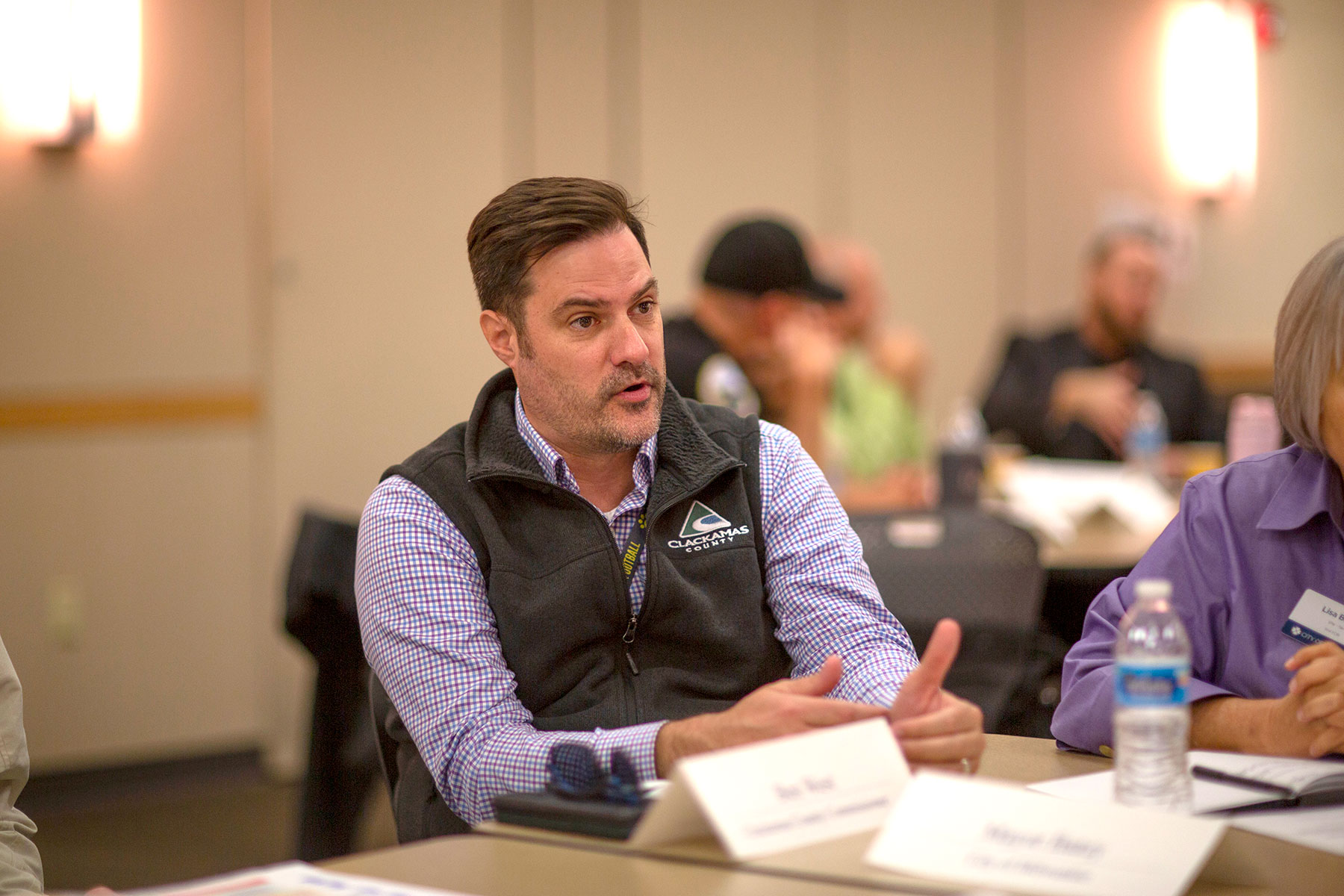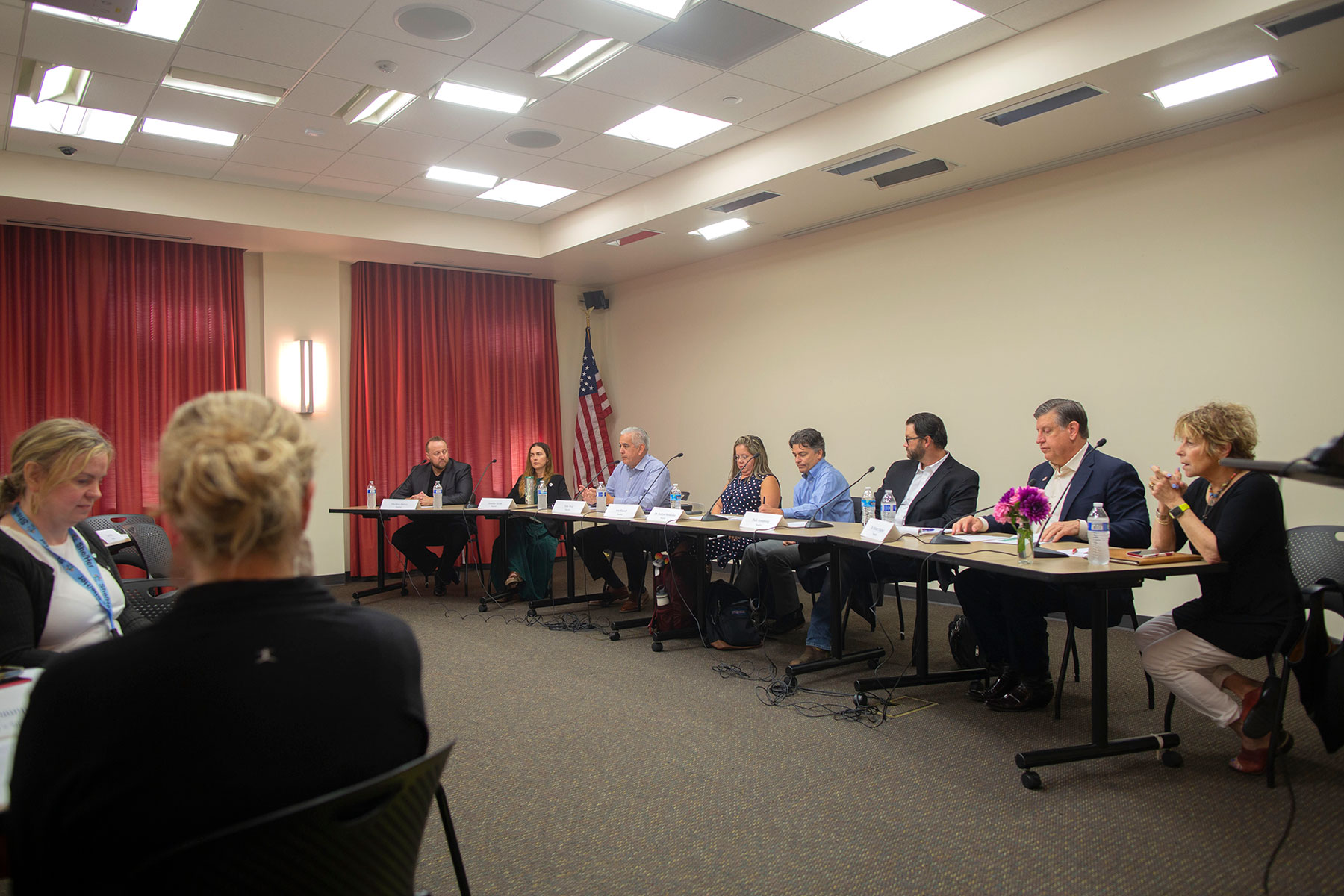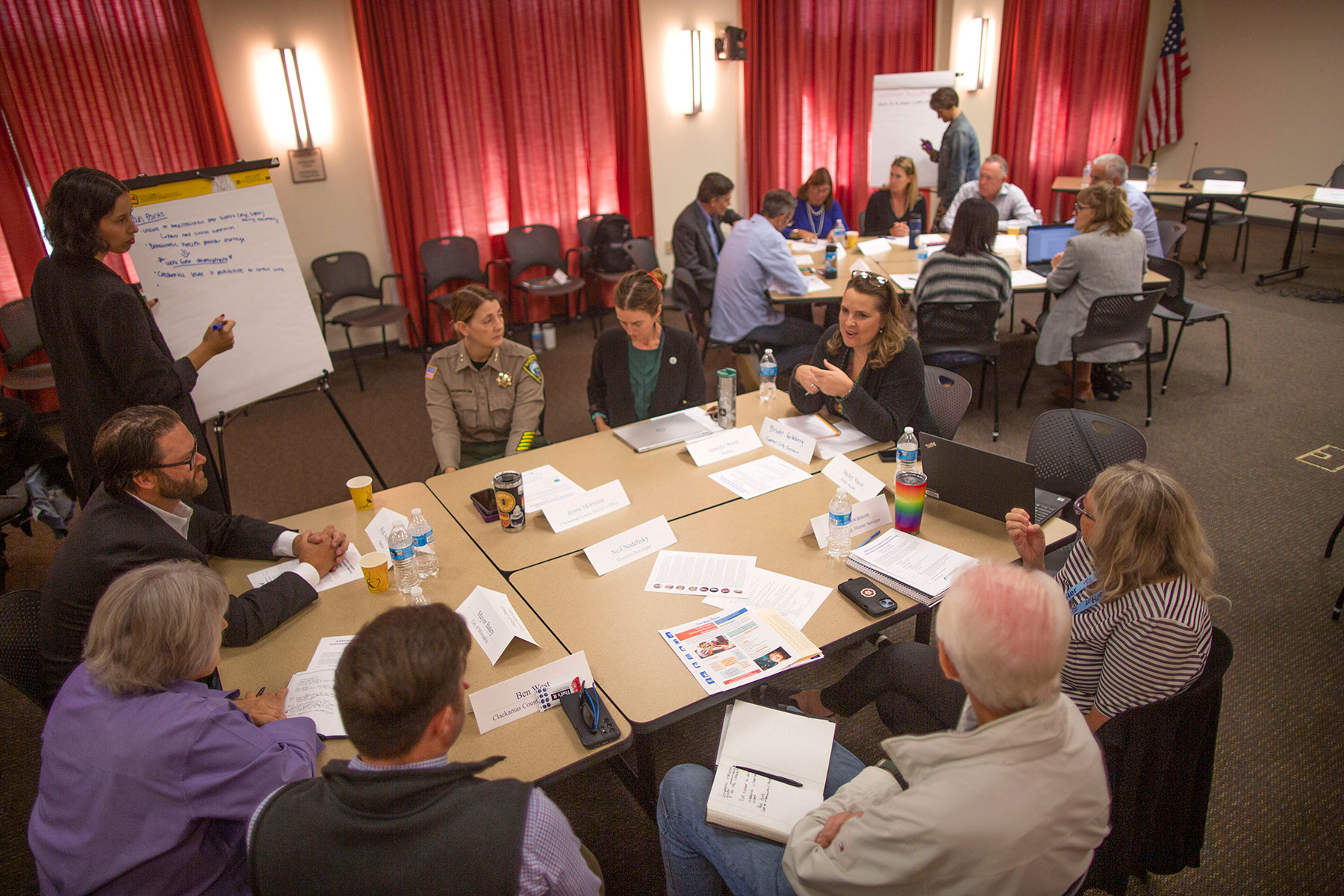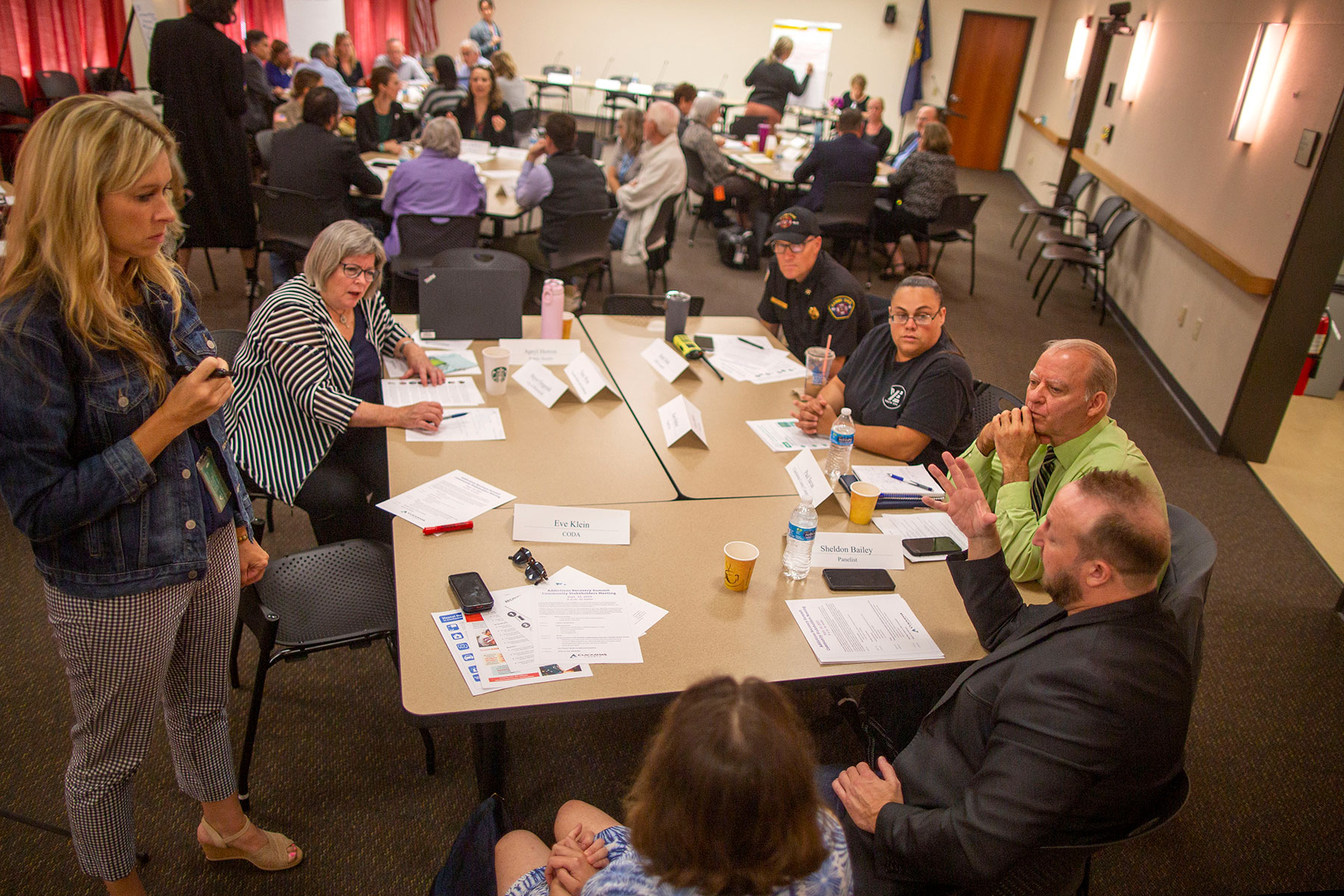Expert addictions/homelessness panel to help guide #ClackCo policies
B-Roll, pictures available for media
Update: Full Video of Sept. 14 Summit Meeting
Over the past two days, the Board of County Commissioners produced a Clackamas Addictions Recovery Summit that brought together local, national and international experts to help develop new solutions to address the addiction and drug abuse problems present in the county area.
The summit was held at the county Red Soils campus in Oregon City yesterday and earlier today. The two-day affair featured three meetings – one between the expert guest panel and county staff, one between the Board and panel, and this morning’s meeting between the panel and community stakeholders (a variety of individuals including the Board, local mayors, health service providers, nonprofit leaders, public safety officials, business developers, and individuals with related lived experiences).
The idea for this summit came out of the Board’s annual retreat held early this year. The need was further buttressed by the Board’s April resolution to support a recovery-oriented system of care (ROSC) in responding to the addictions, mental health and homelessness crisis. That resolution established a framework to guide the county going forward relating to the homeless population who experience drug addiction and mental illness.
The panel discussions and subsequent recommendations will inform the Board about best practices and lessons learned as they identify a course of action in the coming months.
“There are brilliant ideas from all over the world,” stated Clackamas County Chair Tootie Smith. “We convened this summit to hear from thought leaders. We look forward to taking the next step the Clackamas way.”
An ROSC is a coordinated network of community-based services and supports that is person-centered and builds on the strengths and resiliencies of individuals, families, and communities to achieve abstinence and improved health, wellness, and quality of life for those with or at risk of alcohol and drug problems. A ROSC supports the premise that there are many pathways to recovery.
“We’re being innovative and creative in tackling the addictions issue,” stated Clackamas County Commissioner Ben West. “We’re turning over every rock to find good solutions.”
The purpose of the summit was to optimize #ClackCo policies, programs and services that help our residents suffering from addiction. This includes:
- looking holistically at the county’s current work
- identifying which current efforts are working and should be built upon
- addressing shortcomings/gaps with evidence-based practices
- discussing lessons learned from other jurisdictions, and
- exploring other innovations in the U.S. and Canada that have implemented a ROSC.
The potential of creating a recovery center that would offer a continuum of resources in a single location was also explored.
Over the next few months, Clackamas County will discuss these recommendations and develop an ROSC roadmap that builds upon and expands county policies and services to better serve this population.
“Clackamas County is working hard to increase access to addiction treatment and recovery services,” stated Clackamas County Commissioner Paul Savas. “Hearing from a wide range of experts, including several who have lived experience of homelessness and substance addiction, will help us bring best practices to our work. We appreciate their willingness to help us improve outcomes for our communities.”
Expert panelists included:
- Rick Armstrong, Founder/former Executive Director of Our Collective Journey
- Sheldon Bailey, Canadian policy advisor on mental health and addictions
- Dr. Robert Marbut, American homelessness consultant
- Andrew Mendenhall, President/CEO of Central City Concern
- Ana Rausch, Vice President of Program Operations for the Coalition for the Homeless
- Dr. Robert Tanguay, Co-founder/Chief Medical Officer of The Newly Institute
- Tom Wolf, Founder of The Pacific Alliance For Prevention and Recovery
- Jennifer Worth, Confederated Tribes of Grand Ronde
"Tackling the additions crisis is a priority for the Board of County Commissioners," stated Clackamas County Commissioner Mark Shull. "The community is hurting, and we’re taking action."
Added Clackamas County Commissioner Martha Schrader: “The personal stories of these experts with lived experiences – those who have lived on the streets with addiction and know what works and what doesn’t – is essential as we move forward as a county.”
This morning's meeting can be viewed here.
B-Roll and pictures for the media from this morning’s meeting with stakeholders are available below:
 Translate
Translate






